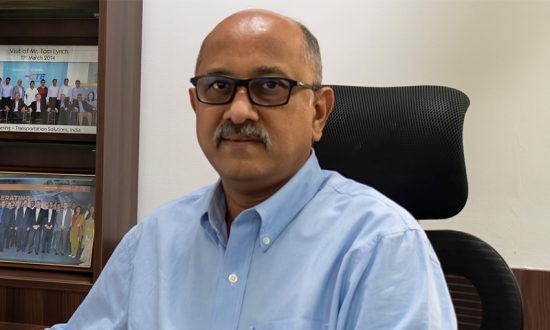Vishwanath is responsible for driving TE Connectivity’s current India business strategy and successful execution of future growth plans. With more than 25 years of executive and general management experience at TE, Vishwanath currently serves as the Finance Director for India and has executive responsibility for TE’s India Shared Service Center and India Engineering Network. He was previously business head for TE’s Transportation Segment in India where he showcased significant management skills and led close interactions with OEMs and other key customers.
Today, customers are more confident in buying electric vehicles, both in terms of 2 wheelers and 4-wheelers. As per the Ministry of Heavy Industries, Government of India, a total of 5,17,322 electric vehicles are registered in India over the last three years. Our responsibility is to help customers meet the future challenges emerging out of this revolution
Technology in the electric mobility sector is continually evolving. Since the past 2 years we have seen traction towards adoption of electric vehicles. From an infrastructure point of view, we need to boost the EV ecosystem with better charging facilities that will enable an increase of the country’s existing fleet of EV vehicles.
With more than 50 years of experience in automotive connectivity systems, high-voltage electricity, and pushing innovation from one industry to the next, TE is ready to complete the connections our customers need to safely, efficiently and reliably make hybrid and electric mobility a sustainable reality.
Factors to boost EV segment in India
There are a quite a few factors that if implemented properly will give the much-needed impetus to India’s EV ecosystem. While the industry will surely benefit from introduction of new products, factors such as long-term government policies, safety, EV infrastructure will boost the segment in India in the coming days.
Government policies: Long term policies initiated by Government will play a major role in fostering the electric mobility sector in India. Incentive schemes such as FAME-II (Faster Adoption and Manufacturing of Electric Vehicles) recently got extended till 2024 with an aim to lift the share of EVs in Indian automobile market and make green mobility for consumers.
Safety: When the world is focusing towards electric mobility, it is of paramount importance for EV makers to incorporate advanced safety features in their products. For EV manufacturers, technology will be of paramount importance in saving human lives on road. With features such as potential threat recognition, road assist guidance, automatic collision detector among others, EV manufacturers will be able to make electric mobility more convenient for consumers.
Charging Infrastructure: While the government has decided that 30 per cent of vehicles on Indian roads by 2030 would be electric, extensive planning is required to develop an integrated network of charging stations across the country. India currently has 427 charging stations while another 2877 stations have been sanctioned in 68 cities and 25 states. If there is limitation in terms of infrastructure, India’s EV sector will not receive the desired boost. To enhance charging infrastructure, OEMs can be a good solution. OEMs simply do not require hardware but need to work closely with suppliers for better understanding of the architectural requirements for developing EVs. We had been deploying OEMs since decades for developing quality vehicular architecture.
Creating value across the chain: In order to boost the EV segment in our country it is imperative to create value across the EV segment. With the help of flexible, open and solution-driven technology one can generate value across the chain. A careful and well-planned integration between technology and customer demands or problems must be implemented to offer customised solutions for them.
Technologies for faster facilitation of EV
Facilitating EV adoption will require a host of factors to work smoothly without any hindrance. In terms of technology, the following should be implemented in the EV industry.
Battery management: Proper battery management is important to facilitate EV adoption. Charging EVs within a short period of time is highly beneficial for the customers. Also, one cannot neglect sustainable mobility today. It is of paramount importance owing to the growing need of sustainability globally.
High voltage connections: High Voltage Connections form an integral part in EV adoption. High, robust, volatile and compact voltage connections are imperative for flawless EV adoption. High-Voltage interconnection systems perform the best for EVs. We have tried to offer such voltages through our PCON high voltage terminals which are designed efficiently with high vibration and wide wires.
Standardization of charging protocol: One must focus on maintaining a standardised charging protocol for the EVs. As charging mechanism forms the fundamental of running an EV, a seamless and standardised protocol is crucial.
The future outlay of Indian Road & Highways
India road and highways need to adopt to the future of electric mobility in the coming decades. Initiatives such as accessibility to charging stations, self-help kiosks, automated payment counters will provide a hassle-free experience to commuters and EV car owners on major national highway roads.
National Highways Authority of India (NHAI) have made extensive plans to set up charging stations along national highways to boost electric mobility infrastructure across the country. India will need a network of 3 million EV charging stations by 2030 to achieve the aim of converting 70 per cent of all commercial vehicles and 30 per cent of private vehicles into electric cars. State governments and urban planning bodies need to chalk out suitable locations that would serve as a hub of EV infrastructure, a one stop destination for electric car owners.


